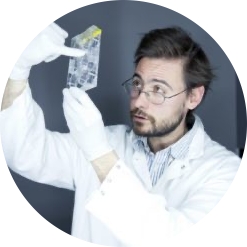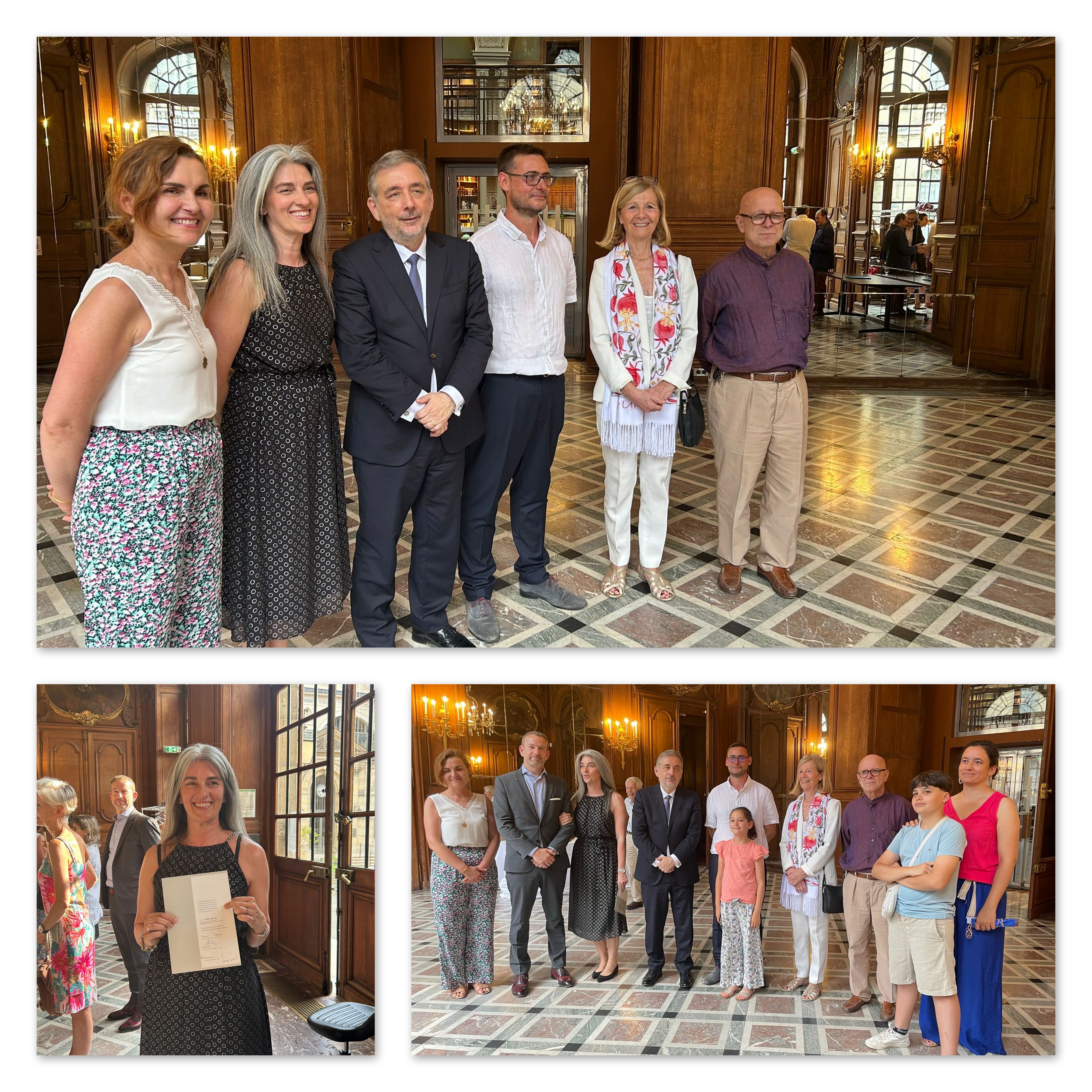
 awards
awards
2025 Pasteur Vallery-Radot Prize and election of new EMBO members: recognition for Institut Pasteur scientists
• Molly Ingersoll et Pablo Navarro-Gil, winners of the 2025 Pasteur Vallery-Radot Prize
Jacqueline Pasteur Vallery-Radot, the wife of Louis Pasteur's grandson, chose the National Library of France (BnF) as the residuary legatee of her estate. Under the terms of her will, the BnF awards two prizes every year, in consultation with the Institut Pasteur, funded by the revenue from her legacy.
Since 2007, these prizes have been awarded annually to two French Institut Pasteur scientists under the age of 50 who have led a major scientific project in the field of biology or physics/chemistry over the last five years, thus proving themselves to be worthy heirs of Louis Pasteur himself. Winners are chosen by a panel of Institut Pasteur and French Academy of Sciences members, chaired by the Permanent Secretary of the French Academy of Sciences.

 At a ceremony hosted by the President of the French National Library (BnF), Gilles Pécout and the Chief Executive Officer of the French National Library (BnF), Philippe Lonné, and attended by Antoine Triller, Permanent Secretary of the French Academy of Sciences, and Pascale Cossart, an Institut Pasteur Professor and Honorary Permanent Secretary of the French Academy of Sciences, these two prizes were awarded on July 2 to Molly Ingersoll, head of the Mucosal Inflammation and Immunity Unit and Pablo Navarro-Gil, head of the Epigenomics, Proliferation and the Identity of Cells Unit.
At a ceremony hosted by the President of the French National Library (BnF), Gilles Pécout and the Chief Executive Officer of the French National Library (BnF), Philippe Lonné, and attended by Antoine Triller, Permanent Secretary of the French Academy of Sciences, and Pascale Cossart, an Institut Pasteur Professor and Honorary Permanent Secretary of the French Academy of Sciences, these two prizes were awarded on July 2 to Molly Ingersoll, head of the Mucosal Inflammation and Immunity Unit and Pablo Navarro-Gil, head of the Epigenomics, Proliferation and the Identity of Cells Unit.
Find out more (in French)
• Mart Krupovic becomes a fellow of the European Molecular Biology Organization (EMBO)
The aim of the European Molecular Biology Organization (EMBO) is to promote excellence in biology by supporting talented researchers at all stages of their careers, stimulating dialog and encouraging the development of an outstanding scientific environment in the field of life sciences.
Some 50 to 60 researchers, leaders in their fields, join EMBO each year after being elected in a highly selective process by the organization's members. Together with the other members, they play a fundamental role in organizing and influencing the direction of European biology research. In total the organization has more than 2,100 members.
 On Tuesday July 1st, the prestigious organization announced the election of 60 new members, including Mart Krupovic, head of the Archaeal Virology Unit .
On Tuesday July 1st, the prestigious organization announced the election of 60 new members, including Mart Krupovic, head of the Archaeal Virology Unit .
Mart Krupovic’s team focuses on addressing various fundamental questions at the interface of microbiology, virology and evolution. As a model for their research, they use viruses infecting archaea, which represent one of the least explored parts of the global virosphere. They are exploring the extent of archaeal virus diversity in different habitats and studyvarious aspects of their biology.
